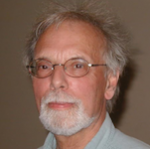5' Introductory video: Otto Laske on the transformative power of learning dialectical thinking Read More...
Tag: Otto Laske
Laske – Cartmel 2015 Interview Series I
First part of the Laske - Cartmel Interview Series Read More...
Obituary for Roy Bhaskar
This article is a reflection on the loss the dialectical tradition has incurred through Bhaskar’s early death. In particular, I spell out how his work contributed to CDF, and mention his utter humility as a person. Roy Bhaskar’s Premature Death: A Profound Loss for the Tradition of Dialectical Thinking Read More...
Reflection on the Western rather than Asian character of DTF and the need for research to make it more Asian or acceptable in Asia
By Otto Laske - At the end of the present introductory course on dialectic I wrote to my students the following note: I should mention one great omission from the introductory class which will make the use of the Dialectical Thinking Framework (DTF) more complex but also more deep. We never discussed the issue of “contrasts”, or better of “alternative” thought forms. By this I mean that when scoring we use contrasts to narrow the choice of the thought form to be scored, by thinking of what alternative scorings could be. These could fall into the same class, in which case the overall scoring result would not change (since we are scoring moments of dialectic, not individual thought forms), but they could also fall into a different moment/class, and this could shift the resulting profile. Investigating the Thought Form table further, we realize how “Western” the presentation of thought forms is: we speak of “classes” of thought forms which is something Asians would not find easy since they are used to grouping things based on similarity relationships rather than categories or classes, and thus following logical rules about attribution to a class. Being critical of the table of thought forms... Read More...
From “Developmental Theory” to a Dialogical and Dialectical Epistemology
By Otto Laske - In this text, I focus on the central relevance of interviewing skills for being able to lead a structured developmental dialog in the sense of the Constructive Developmental Framework (CDF), whether social-emotional or cognitive. I want to make it clear that the certification as a Master Developmental Consultant/Coach at the Interdevelopmental Institute (IDM) is not a certification in practicing “developmental theory”, but rather an independent discipline derived from it, namely, a dialogical and dialectical epistemology. Developmental theory per se is taught at IDM only in applied courses which serve as a basis for learning the CDF epistemology, and in this sense are mere teasers for learning to think and listen developmentally, dialogically, and dialectically. What matters is not the theory, but its applications in work with human resources (“human capital”). This has always been the focus of IDM teaching. Abbreviations: CDF = Constructive Developmental Framework (Laske); DCR = Dialectical Critical Realism (Bhaskar); DSF = Dialectical Schema Framework (Basseches); DTF = Dialectical Thought Form Framework (Laske); IDM = Interdevelopmental Institute (Laske). *** When I started writing my two books on Measuring Hidden Dimensions in 2005, it was clear to me that the most progressive part of Kegan’s... Read More...
Otto Laske on his work
An interview by Paul Anwandter Read More...
